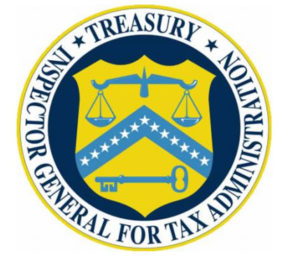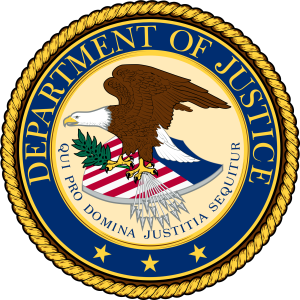President Trump Signs A New Law Stopping Asset Forfeiture Abuse By The IRS
Thursday, August 8th, 2019 @ 4:43PM
CFEG researches and reports on fraud, waste and abuse within the federal government with the goal of educating the public, the Congress and preventing and eliminating it through legislative and program initiatives.
In this article CFEG reports on a new law signed by President Trump which stops abuses by the IRS when seizing private property, otherwise known as civil asset forfeiture.
On July 1, 2019 president Trump signed the Taxpayer First Act into law. https://www.govinfo.gov/content/pkg/BILLS-116hr3151enr/pdf/BILLS-116hr3151enr.pdf A section of that law is known as the Clyde-Hirsch-Sowers RESPECT Act. (RESPECT Act) In his press release on July 1, 2019, Congressman Doug Collins stated, “For too long, hardworking individuals and small business owners—like Andrew Clyde—have fallen victim as the IRS has abused civil asset forfeiture. With the RESPECT Act finally becoming law, law-abiding citizens can rest easy knowing they no longer have to fight the federal government just to prove their innocence.” https://dougcollins.house.gov/media-center/press-releases/president-trump-signs-collins-bill-stop-irs-abuse
Congressman Collins introduced the RESPECT Act earlier this year to protect innocent individuals and small business owners from IRS abuse and ensure their assets are not wrongly seized under civil forfeiture policies. Congressman Collins noted in his press release on July 1, 2019 that the RESPECT Act was inspired in part by Andrew Clyde, a U.S. Navy veteran, owner of Clyde Armory, and resident of Georgia’s Ninth District. In April of 2013, the IRS seized nearly $940,000 from Clyde’s bank account without charging him with any crime, simply because he was regularly depositing several thousand dollars of cash from his business.
On March 30, 2017 the Treasury Inspector General For Tax Administration (TIGTA) issued a report titled, “Criminal Investigation Enforced Structuring Laws Primarily Against Legal Source Funds and Compromised the Rights of Some Individuals and Businesses.
https://www.treasury.gov/tigta/auditreports/2017reports/201730025fr.pdf. In this report TIGTA stated that it prepared the report because the IRS had been seizing funds in structuring investigations without filing a criminal complaint. Property owners were left to prove their innocence, and many gave up trying. TIGTA initiated its audit of the IRS to evaluate the IRS’s use of seizures against property owners suspected of structuring transactions to avoid Bank Secrecy Act reporting requirements. https://www.treasury.gov/tigta/auditreports/2017reports/201730025fr.pdf.
The Currency and Foreign Transactions Reporting Act of 1970, (31 U.S.C. Section 5324), referred to as the Bank Secrecy Act, requires U.S. financial institutions to file reports of currency transactions exceeding $10,000. 31 U.S.C. Section 5324(a) states that no person shall, for the purpose of evading the reporting requirements, cause or attempt to cause a U.S. financial institution to fail to file a report required or structure. Whoever violates the structuring law can be fined, imprisoned or both. Any property involved in the violation of this law may be seized and forfeited. https://www.treasury.gov/tigta/auditreports/2017reports/201730025fr.pdf.
Before President Trump signed into law the RESPECT Act on July 1, 2019, if an individual or business deposited or withdrew cash amounts under $10,000 the IRS could seize it for structuring even though the money was earned legally and they were never charged with a crime. For example, a customer might deposit currency on multiple days in amounts under $10,000 (e.g., $9,900) for the intended purpose of circumventing a financial institution’s obligation to report any cash deposit over $10,000. Such deposits met the definition of structuring under the Bank Secrecy Act. Also, a customer or customers might engage in multiple transactions on one day, or over a period of several days or more, in one or more branches of a bank or credit union, in a manner intended to circumvent the currency transaction reporting requirement. https://www.treasury.gov/tigta/auditreports/2017reports/201730025fr.pdf. Under the new RESPECT Act the IRS can only seize property for structuring if it is derived from an illegal source or if the money was structured to conceal criminal activity.
TIGTA in its March 30, 2017 report found that out of a sample of 278 structuring cases 91% involved legal source funds, meaning that the funds being deposited or withdrawn from financial institutions were from a legal source and only 9% involved illegal activity or an illegal source of funds.
https://www.treasury.gov/tigta/auditreports/2017reports/201730025fr.pdf. TIGTA found that businesses that deal with currency transactions (retail, wholesale, service, automobile, restaurant, gas station, etc.) were primarily affected by the structuring seizures. TIGTA found that when interviewed by the IRS, property owners explained that the funds withdrawn were used for business purchases (e.g., jewelry stores, pawn shops, and scrap metal dealers). TIGTA’s report made clear that taxpayer rights were compromised by the IRS when their legal source funds were seized.
Under the new law signed by president Trump on July 1, 2019, within 30 days after property is seized, the IRS must make a good faith effort to find all persons with an ownership interest in the property and provide each such person so found with a notice of the seizure and of the person’s rights. https://www.govinfo.gov/content/pkg/BILLS-116hr3151enr/pdf/BILLS-116hr3151enr.pdf In addition, a person with an ownership interest in the property can obtain a hearing by a court of competent jurisdiction within 30 days of the notice and the property seized must be returned, unless the court holds an adversarial hearing and finds that there is probable cause to believe that there is a violation of Section 5324 of the Bank Secrecy Act involving such property and probable cause to believe that the property to be seized was derived from an illegal source or the funds were structured for the purpose of concealing the violation of a criminal law or regulation other than Section 5324 of the Bank Secrecy Act. https://www.govinfo.gov/content/pkg/BILLS-116hr3151enr/pdf/BILLS-116hr3151enr.pdf
The RESPECT Act is a victory for the taxpayer and stops IRS abuses of civil asset forfeiture because the IRS can only seize property for structuring if it is derived from an illegal source or if the money was structured to conceal criminal activity.
Posted by cfegov
Categories: Fraud, Waste and Abuse, IRS ABUSE












